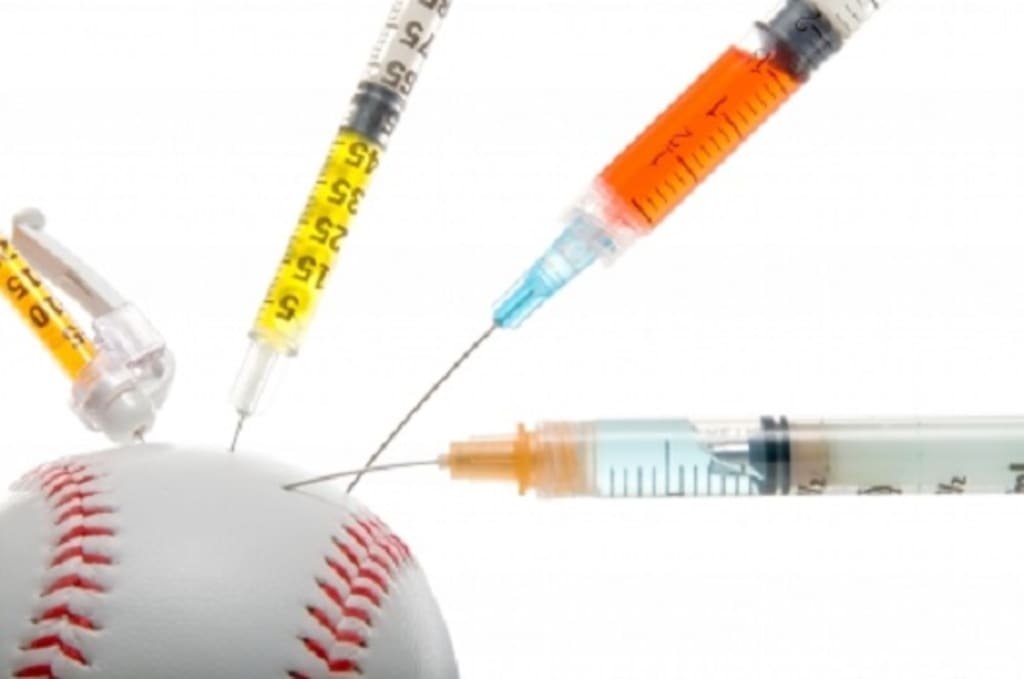
Modern science has brought along many wondrous advancements that help us along, but those advancements have also smuggled in with it some serious ethical conundrums. One of those problems is chemical enhancements. It is one thing if they are used to advance and prolong health, it is a totally different matter if they are used to boost strength, speed, and overall performance to give one a physical advantage in competitive sports. Society doesn’t care if a police officer, fireman, or Joe Carpenter uses physical enhancements. It might even be encouraged as there may be arguments in its favor. The difference in sports lies in the fact that there is open competition in these endeavors.
There is a name for the nemesis that has infected the minds of not just athletes, but all of society in general that would allow for unjustified, unethical shortcuts. The name of that beast is pragmatism or, in laymen's terms, the end justifies the means. Athletes have tried to gain an advantage since organized, competitive sports first began. The seeking of a chemical advantage began early on.
“In 1889, for example, pitcher Pud Galvin became the first baseball player to be widely known for his use of performance-enhancing substances. Galvin was a user and vocal proponent of the Brown-Séquard Elixir, a testosterone supplement derived from the testicles of live animals such as dogs and guinea pigs.” (Smith, Robert. A Different Kind of Performance Enhancer, NPR.org, March 31, 2006.)
It can also be traced to the early 1960s. From Wikipedia,
“According to writer Zev Chafets, Mickey Mantle's fade during his 1961 home run chase with Roger Maris was the indirect result of an attempt by Mantle to gain a substance-based edge. Chafets alleges that Mantle was hampered by an abscess created by a botched injection of a chemical cocktail administered by a ‘quack’ doctor, Max Jacobsen. According to Chafets, the injection included steroids and amphetamines, among other substances.” (Chafets, Zev. Let Steroids Into the Hall of Fame, The New York Times, June 19, 2009.)
In the early 1970s, also from Wikipedia,
“Former pitcher Tom House, drafted in 1967 and active in MLB from 1971-1978, has admitted to using ‘steroids they wouldn't give to horses’ during his playing career. According to House, the use of performance-enhancing drugs was widespread at that time. He estimates that ‘six or seven’ pitchers on every team were at least experimental users of steroids or human growth hormone, and says that after losses, players would frequently joke that they'd been "out-milligrammed" rather than beaten.” ("Former pitcher Tom House describes past steroid use", The Associated Press, May 3, 2005.)
Even though Major League Baseball finally outlawed certain performance enhancing drugs in 1991, the league did not start PED testing until 2003. This is where Major League Baseball displayed its hideous pragmatist stripes by willfully ignoring the problem because of the popularity hit the league took after the 1994 strike. The home run derby that took place during the 1997 season between Mark McGwire and Sammy Sosa was the vehicle that carried Major League Baseball back into the popularity stratosphere; and, therefore, the performance enhancing drug problem was ignored until after that race and Barry Bonds’ home run onslaught in 2001. If you don’t think performance enhancing drugs helped Bonds in his record setting home run hitting season, besides that fact that he noticeably “Hulked” up physically compared to when he first started playing in the major league, he failed to reach the 50 home run mark in every season prior to hitting 73 in 2001. Conveniently, Major League Baseball started implementing PED testing after it had regained its popularity. Got pragmatism?
Baseball isn’t the only sports infected by this sort of Pragmatism. The NFL seems to have a performance enhancing drug problem, yet no one seems to care, including the NFL itself. Case in point, the current Super Bowl MVP, Julian Edelman, missed the first four games of the season for violating the NFL’s performance-enhancing substance policy. Currently, if he were playing in the MLB, he would have been ineligible for any post season play. The world cared about Baseball’s PED problem after 2003. It doesn’t seem to care when it comes to the NFL in 2019. Have we retrogressed?
It seems everyone wants a competitive edge, but cheating and the philosophy that justifies it, pragmatism, is not the answer. The answer lies in working harder, studying longer, and being more aware of how you attack your physical and mental shortcomings. In general, striving to be a better athlete, naturally. Not only will it make you a better athlete, it will also make you a better human being.
The Podcast
The Transcript
About the Creator
DJ Grand
Co-host of the Grand Designs Podcast, located at granddesignspodcast.com. Where we link the chains of reason to sports, politics and culture. Who are you listening to?






Comments
There are no comments for this story
Be the first to respond and start the conversation.